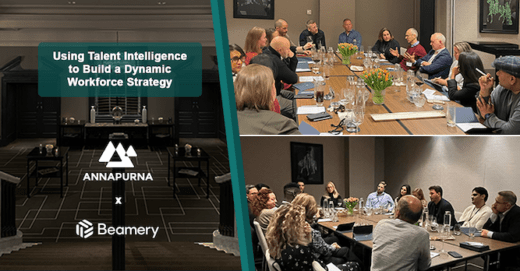I spent 17 years working in big companies. Despite the common corporate mantra promoting collaboration and team building, among my inner circle I was known for my despise of teamwork. I hated it! I like to have complete control of my work and want to be left alone while I am doing it.
Because of the friction this type of mentality creates, most of my experience in the corporate world convinced me to believe for the longest time that I was not a good ‘team player’. In later years I discovered that I was quite wrong about this and that I was merely listening to the wrong people and in the wrong place.
I believe that my logic is quite reasonable when you are in a situation where you can’t control with whom you are working with. People should not be penalised for being protective of their work. If you take your work seriously, few things are less frustrating than having to share it with others who are less passionate than you and consequently accept mediocrity. Imagine how you would feel if you were Michelangelo painting the Sistine Chapel and the Pope in the spirit of ‘teamwork’ insisted that you allow his less-than-talented nephew to be responsible for the Creation of Adam. It would be a tough pill to swallow wouldn’t it?
Someone once told me that the real talent of leaders lies not in how well they work with those they get along with but with those with whom there is friction.
The nature of large companies brings compromise that each individual has to face. A balancing act of knowing when to protect your work for yourself and when to engage your colleagues. It is essential to know when and how to use your talents to make someone else’s work richer, and knowing when it is not the right moment despite the opportunity to shine. That is the nature of the game. And yes, it is a game.
To be good at it you need to show empathy and dedicate the time to understand each person’s position. If you are good at managing situations of such, you are a corporate gem. You are in the ‘management material’ category because you know how to balance your time between doing ‘real work’ and navigating through the rigidness of the organisational hierarchy all while managing people’s idiosyncrasies simultaneously. Such talents offer great potential to bring the company to where it is trying to go. If this is you, stay on the path. Corporations are seriously lacking people with these skill sets and this is a great growth opportunity for you to embrace for you are a true ‘corporate team player’ and potential future leader if you are not one already.
If you find yourself however ‘sacrificing for the better of the team’ too often and you don’t feel good about it, it is probably time to move on.
If somebody above you is telling you that you are not a good team player, he could most certainly be right. But in many cases as I have learnt first hand, it could also mean that there is a personality clash. It is possible that you are merely not a good fit for his team and the way he manages it. Team leaders are often jealous not only of talent but also of passion that they may see in their subordinates for which they don’t see in themselves. By staying, you will most likely spend the majority of your time being ‘coached’ by what your supervisor conveniently perceives to be your shortcomings when what he should be doing is leveraging and helping you grow your strengths.
I discovered when I co-founded my company in 2015 the immense beauty of being able to choose with whom you work with and how in doing so, you can achieve collective results that supersede anything you would have ever dreamt of doing individually.
When you find yourself in a situation where within a large challenge each person naturally gravitates to the task that optimises the collective result without question, you have found harmony. Synergies of such are the mother of creativity, invention and great work. This is pure passion ultimately bringing value to the greater good of society. As humans, this is our strong suit that no machine will ever compete with.
A Director of Human Resources once told me after listening to me continuously complain about having to accept mediocre results, my clashes with my supervisor and making excessive corporate ‘sacrifices for the team’ that my type of character is best suited for a small company. To date I consider his words one of the greatest services I ever received from HR.
A few months after that I became a co founder and Managing Director of a small continuous improvement consulting firm that now has mid-to-large size clients on multiple continents. We have over 25 shareholders and 6 active managing partners. I have direct frequent relationships with executive decision makers who count on us to make significant and long-term break-through changes to the operational landscape of their companies and the people supporting them. This achievement is due to one thing only, the spectacular collaboration-based contribution of my team who I have been fortunate enough to have hand picked myself over the years. What we have achieved to date, I wouldn’t have ever dared to dream of accomplishing on my own.
Am I a team player? I would say for sure!
As the African proverb says ‘To go fast, go alone. To go far, go together’. Your work is a journey. If you choose your travel companions wisely, your journey will be more rewarding than you can imagine.
If you find yourself in a non-collaborative, toxic work environment, be patient and seize the moment. This is your opportunity and duty to yourself to GO FAST while you are still searching for your tribe doing your best to tune-out the noise around you as difficult as it can be. Do so to test yourself, invest in your personal development and give yourself the experience you need until you find those perfect team mates for which at that point, GO FAR and don’t look back!
It is important to learn the value of being a team player but first you need to find the team suited for you.
Where do you get the best version of yourself?
Are you a corporate collaboration gem or do you fit better on a small team aggressively dividing and conquering together?
What can large companies do to enhance their methodology of collaboration and leverage the different personalities available in their talent pool while minimising friction and maximising collective results?
Please share your thoughts for I love these topics
AL




